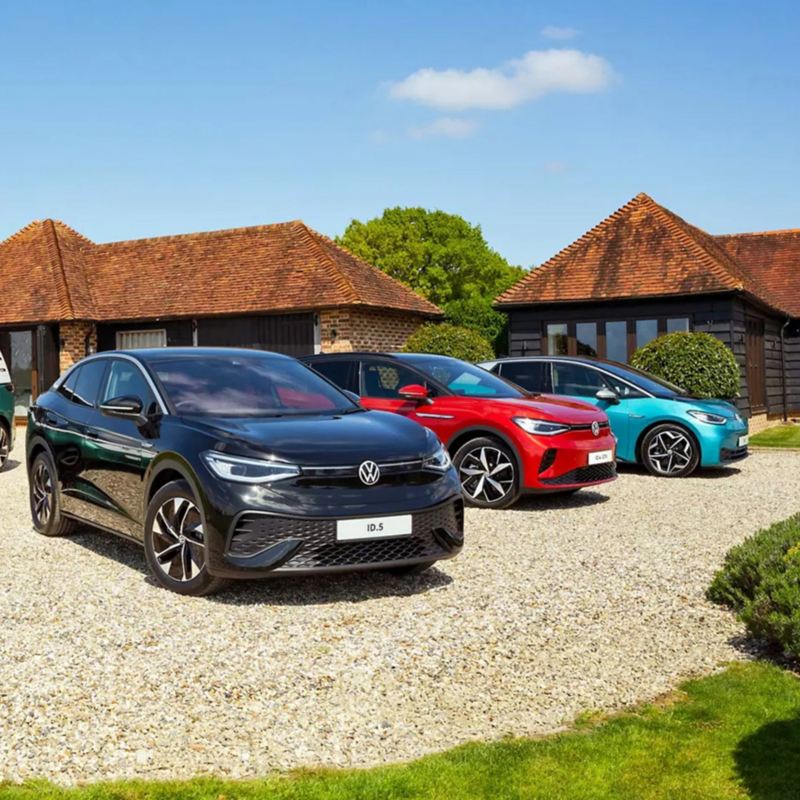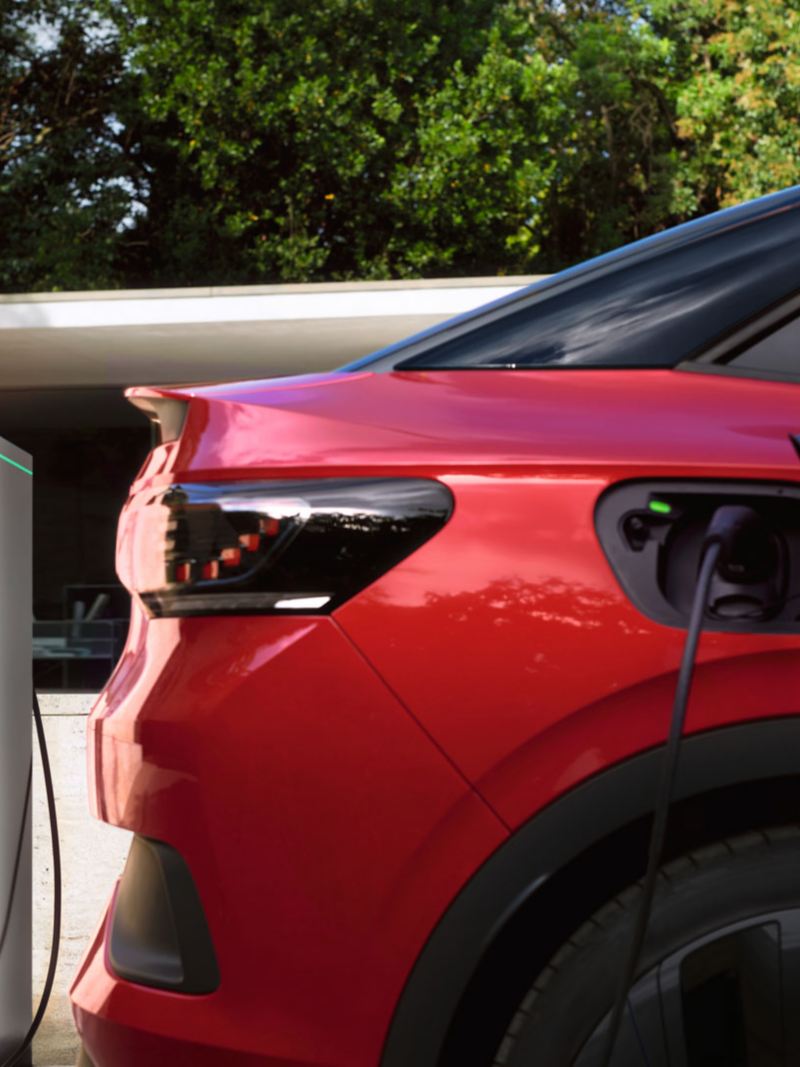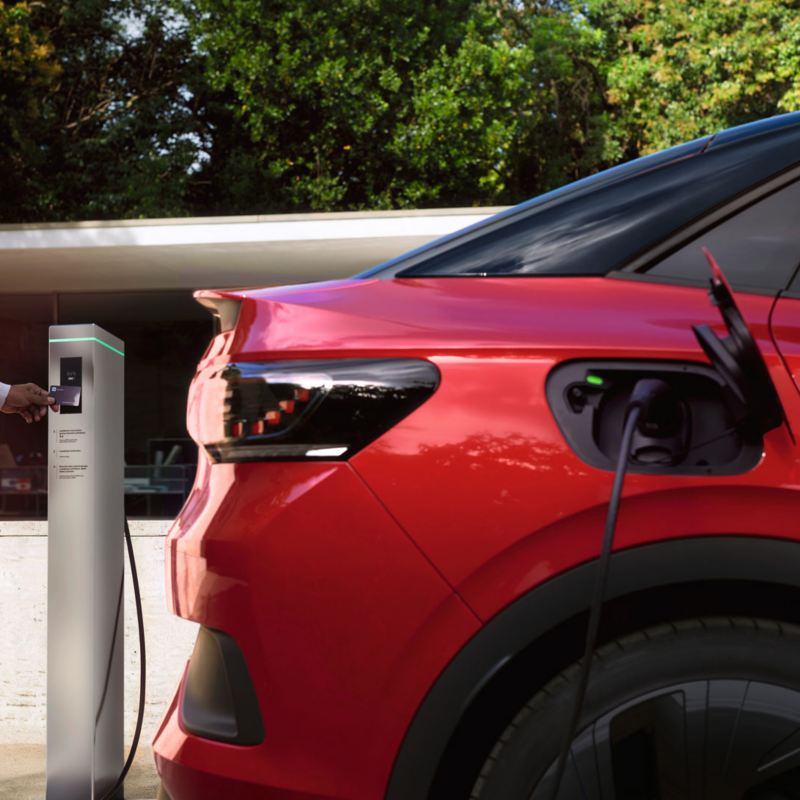What’s the right battery size for your electric car?
With batteries, biggest isn't always best. Many factors play a part when deciding on the right battery size.
Find out more about the right battery size here:
- Today, most electric car manufacturers offer batteries of different sizes.
- Bigger batteries offer advantages in terms of range, flexibility and charging capacity.
- And smaller batteries score better on carbon footprint and sustainability.
- Technical developments mean that drivers of battery-powered vehicles will have an even wider choice in future.
Spoilt for choice with electric car batteries
One electric car, one battery size – this equation no longer adds up, because today, most manufacturers of electric cars offer batteries with different capacities. Vehicles with two or three battery sizes are no longer a rarity. When deciding which battery is the right one, you have to consider many factors, which are as individual as electric car drivers themselves. As well as typical criteria, such as a battery's range, charging capacity and life, the focus is increasingly on aspects, such as the vehicle's carbon footprint and use of raw materials.
Every size has its advantages
As with many things, there's no silver bullet when deciding which battery size to go for. Choosing the battery capacity has environmental implications, as well as everyday practical and financial aspects. These days, electric car drivers can benefit from almost made-to-measure solutions. These points provide a bit of guidance:
Large battery
- Longer range
- More flexibility
- Better fast-charging capacity
- Longer life, as charging is mostly gentler and the battery is seldom at 100% charge
- Capacity losses are not as noticeable
Small battery
- Low price
- Range meets most everyday needs
- Less use of rare raw materials
- Lower weight
The right battery for long distances
But how do you find the right battery in the right size? One vital factor for e-mobility is range. While 100 kilometres or so used to be norm, today electric cars manage ranges of over 500 kilometres without a problem. These ranges are generally possible thanks to the right battery sizes. In an electric car, battery capacity is the equivalent of the fuel in the tank of a combustion engine.
- Therefore, electric vehicles with large batteries offer more flexibility. Spontaneous trips, long distances and bigger diversions are all the more relaxed when there's always enough electricity in your car's battery. In addition, electric cars with a larger battery also tend to have more engine power and manage a higher charging output at fast-charging stations. This saves time and guarantees relaxed driving with an electric powertrain. (Image: Adobe Stock)
Drive for longer with a bigger battery
Larger batteries also have the edge when it comes to lifespan. A greater battery capacity also means fewer charging cycles over the same mileage. As a result, a bigger battery also ages more slowly than a small one. Whereas an electric car with a range of 200 kilometres (and a smaller battery) will have been through 1,000 charging cycles after 200,000 kilometres, a vehicle with a 300-kilometre range (and larger battery) manages just 670 charging cycle. Therefore, not only is driving an electric car with a bigger battery more flexible – your battery will last longer. What's more, a relatively old battery still has enough reserve, despite a loss of capacity. The range does diminish over the years, but a larger battery hides this better than a smaller electric car battery.
Better carbon footprint with smaller batteries

However, that doesn't mean that owners of electric cars with smaller batteries have to worry about range. Today, modern batteries with a low energy content are more than adequate for everyday driving, such as commuting, for instance. These cars also have the advantage where environmental awareness is concerned – smaller electric car batteries have an edge in terms of their carbon footprint, and also in the quantity and quality of raw materials used.
Even electric cars leave behind an ecological footprint. They may not produce CO2 emissions like cars with an internal combustion engine, but the extraction of raw materials for electric car batteries and the production of lithium-ion batteries are relatively energy-intensive processes. However, in general, electric cars have a better carbon footprint over their lifetime: a new study by the TU Eindhoven university shows that electric cars leave combustion engine vehicles standing after about 30,000 kilometres. (Image: Adobe Stock)
Materials and prices
The same applies to the use of materials: the fewer raw materials are needed, the more sustainable battery-powered driving will be. Battery size also directly influences the price. The greater time and complexity of producing more powerful batteries will impact your wallet when you purchase an electric car. Last but not least, the lower weight of a small battery also affects the electric car's power consumption; you need less electricity to move less weight.
Developers are also increasingly turning to new technologies to keep shrinking the ecological footprint of battery production. Solid-state batteries could soon achieve double the range of comparable conventional batteries. Moreover, manufacturers of lithium-ion batteries are continuing to reduce the proportion of raw materials, such as lithium and cobalt, used in their production. Things are also happening with used battery recycling. We're making – battery-powered – progress!


